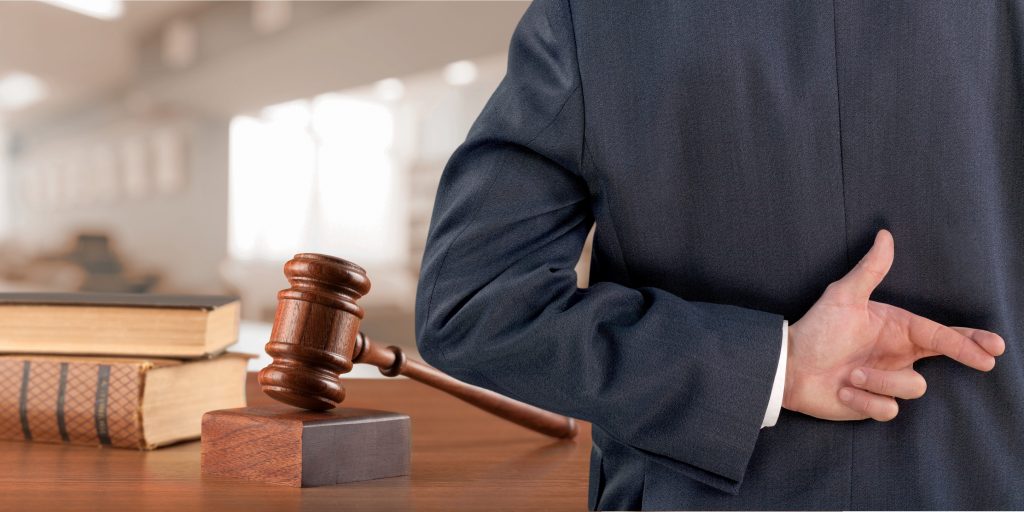Bail is an essential right in many legal systems, designed to allow individuals accused of crimes to be released from jail until their trial, with the understanding that they will return to court as required. The purpose is to avoid punishing someone before they are proven guilty.
However, there are circumstances where a judge may deny bail or set it at an unaffordable amount. This decision is made based on legal factors that prioritize public safety, the likelihood of the defendant appearing for trial, and the integrity of the justice system. Below are some of the most common reasons why bail may be denied:
- Risk of Flight
A judge may deny bail if they believe the defendant is likely to flee the jurisdiction to avoid prosecution. This is especially true if the accused faces serious charges or has a history of fleeing, or if they have strong connections to another country. Factors like foreign citizenship or a lack of local ties can raise concerns about the defendant skipping trial.
- The Seriousness of the Offense
The severity of the crime can influence whether bail is granted. Defendants accused of serious or violent crimes such as murder, rape, or armed robbery may be considered a significant threat to public safety. In such cases, a judge may deny bail to protect the community and ensure the judicial process is not undermined.
- Threat to Public Safety
If the defendant poses an ongoing danger to the public, bail may be denied. This is common in cases involving violence, such as domestic abuse, drug trafficking, or gang activity. A history of violent behavior or threats made during arrest or investigation can also lead a judge to keep the defendant in custody.
- Prior Criminal Record
A defendant’s criminal history is a crucial factor. If the individual has previous convictions, particularly for similar or violent crimes, the judge may see them as likely to reoffend. A history of failing to comply with court orders (e.g., violating probation or parole) can also contribute to bail being denied.
- Failure to Appear in Court Before
If the defendant has a past record of skipping court hearings or violating the terms of a previous bail agreement, this lack of trustworthiness can lead to a bail denial. The court may consider the defendant’s past failures to attend scheduled hearings a strong reason to keep them in custody.
- Public Outcry or High-Profile Cases
In high-profile cases or situations where there is significant public attention, a judge may feel pressure to deny bail. Public outcry or concerns about potential unrest can lead to a cautious decision, with the judge prioritizing public safety over the defendant’s right to be released.
- Ongoing Investigations or Multiple Charges
If the defendant is facing multiple charges, especially in complex cases like organized crime, the judge may worry that releasing the defendant could interfere with investigations or lead to further criminal activity. In these instances, the risk of continued crime while out on bail can be a determining factor.
- Inability to Meet Bail Conditions
Even if bail is set, a defendant can be denied release if they cannot meet the conditions of bail. For example, if the court requires the defendant to pay a certain amount of money or abide by conditions like wearing an ankle monitor, failing to meet these conditions could result in remaining in custody.
- Mental Health or Addiction Issues
Defendants struggling with severe mental health issues or substance addiction may face bail denial if they are deemed a danger to themselves or others. Impaired judgment or an inability to comply with bail conditions due to these issues can lead the court to decide that the risks of releasing the defendant outweigh the benefits.
- Violating Probation or Parole
If the defendant is already on probation or parole and is arrested for a new offense, the judge may deny bail due to the violation of their release terms. A history of non-compliance with conditions of release increases the perception that the defendant is a risk to reoffend or fail to adhere to court orders.
The Bottom Line
The decision to grant or deny bail involves a complex evaluation of factors such as the seriousness of the crime, the defendant’s criminal history, and the risks they pose to public safety or the judicial process. While the presumption of innocence is a core principle of the justice system, bail can be denied if there are legitimate concerns about flight, safety, or the integrity of the trial. Understanding these reasons helps clarify the circumstances under which bail may not be granted and underscores the court’s responsibility to balance individual rights with the need to protect society and ensure justice.
About Bail Bonds St. Tammany
Bail Bonds St. Tammany is a local bonding company. With several locations throughout the state of Louisiana, we service St. Tammany Parish Jail in Covington, Livingston Parish Jail in Livingston, Jefferson Parish Jail in Gretna, Tangipahoa Parish Jail in Amite, St. John Parish Jail in Laplace, and many more.
For more than 20 years in the industry, Bail Bonds St. Tammany has been providing both families and individuals with expedient and efficient bail service. We are reliable at any time, day or night. We are always here for our clients and we treat people who require bail as people, not criminals. There is no way of knowing the circumstances behind what has happened to an accused, and we firmly believe in “innocent until proven guilty.” This respectful approach to our clients is part of what makes Bail Bonds St. Tammany better than the competition.
We process all bond payments securely, and our friendly staff is efficient and hardworking, getting all the required paperwork done as quickly as possible. We do not want loved ones to stay in custody longer than necessary. Our bail bondsman will make the entire process of obtaining bail simple and painless. Let industry knowledge work for you.
We offer payment plans, too. For more details on the types of bail bonds we offer, and to get started, call any of our locations, or fill out an online form.




